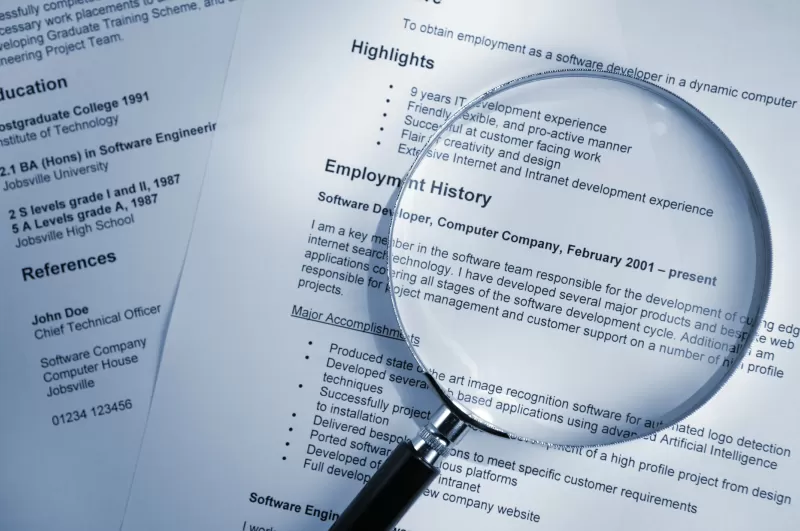
Employment History.
This type of data can include past employers, job titles, and dates of employment.
When filling out your resume, it is important to include all your relevant experience, even if it is not directly related to the job you are applying for. Omitting any detail can make your resume appear incomplete.
For example, if you are applying for a position in corporate affairs, but you have worked in marketing for the majority of your career, you should include this information in your resume. Even though this may not seem like it is relevant experience, it can be pointed out that you were responsible for creating awareness of a company's social responsibility programs, which can be relevant to the job you are applying for.
Past Employers
It is important to note that even if your resume is not directly related to the position you are applying for, it does not mean that having a series of past employers is a negative. It can be a sign of competence if you have been in the workforce for a while and have had the opportunity to work for different companies. This allows you to gain valuable experience, which in turn makes you a more attractive candidate for future positions.
If you are looking for further information on what types of experience are valuable to employers, check out this Resume Statistic Report from Elance, which breaks down the top 20 skills that employers are looking for right now.
Job Titles
Include all the relevant job titles you have had. If you are changing jobs frequently, it can be hard to keep track of all your previous positions. Omitting job titles from your resume makes it appear that you are either trying to hide your past employment history or that you do not have enough experience to justify your qualifications.
It can also be beneficial to list the job titles in order of importance. The most relevant job titles should be at the top of the list. For example, if you are applying for an accounting position, but you have previous work experience in human resources, you should list your human resources experience first, followed by your accounting experience.
Dates Of Employment
This information should always be included in your resume. If you do not, it makes it look like you are trying to hide your employment history. Omitting any of the dates of your employment can also make your resume appear incomplete.
It is also important to note that dates can serve two purposes in your resume. First, they can show your employment history. Second, they can show the employment opportunities that are currently available to you. You should always include the most recent date first, followed by the rest in ascending order.
With all these tips in mind, you can create a perfect resume that will land you the job you want!